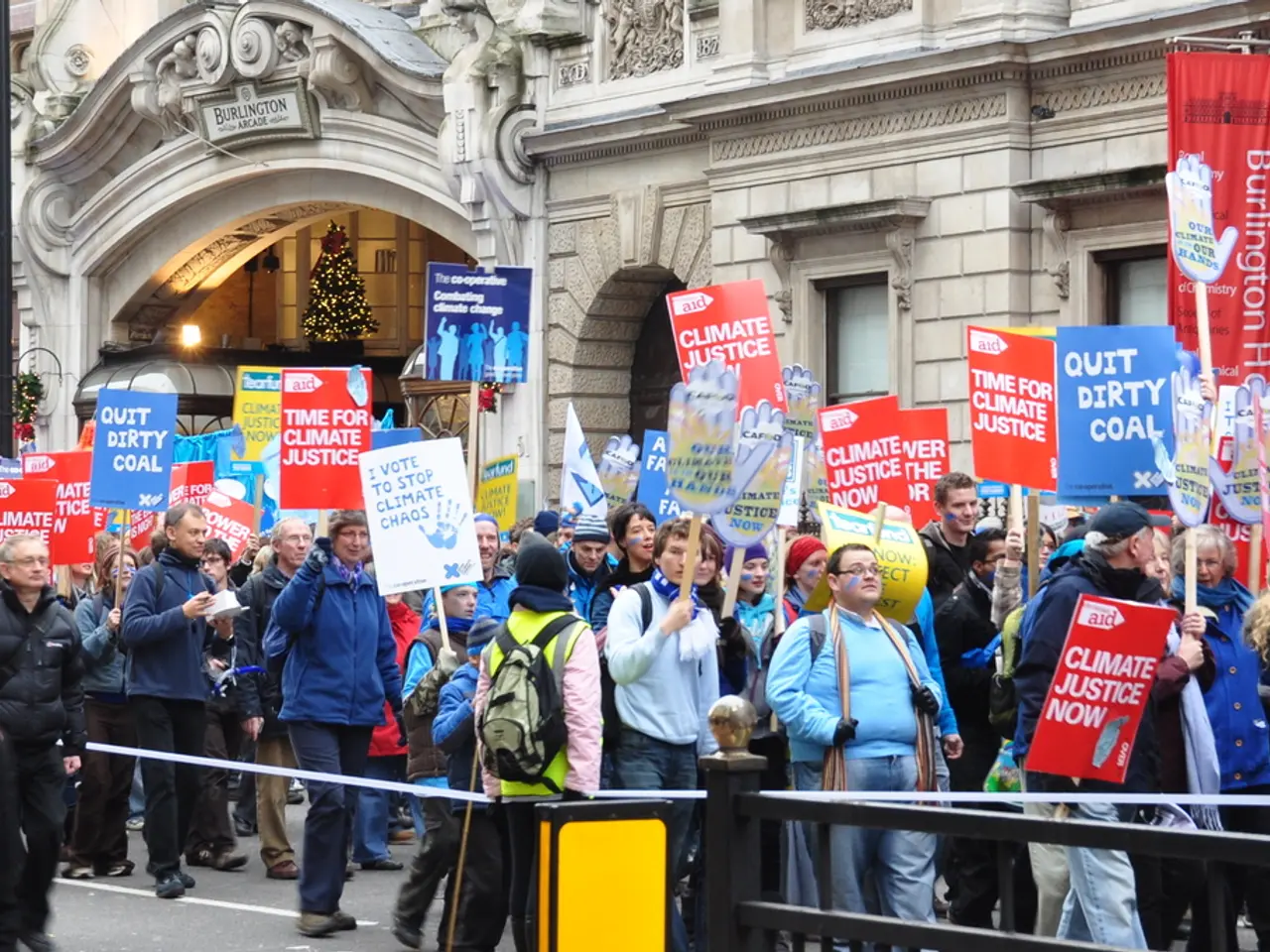Manuela Schwesig Pushes for Swift Reduction in German Electricity Prices and a Sustainable Energy Strategy
Minister Schwesig advocates for immediate decreases in electricity costs - Urges Immediate Reduction in Electricity Prices Costs, as Suggested by Süsig
Let's get down to it! Manuela Schwesig, Prime Minister of Mecklenburg-Vorpommern (MDP), is shaking things up in Germany. She's demanding swift action to bring down electricity prices, highlighting the necessity of an energy plan for the country.
Schwesig is a no-nonsense kind of gal, stressing that the economy needs immediate support and that the federal government's growth booster package is a good start. But she ain't about resting on laurels, as she insists this package shouldn't put disproportionate strain on states and municipalities.
Speaking of the feds, they've got plans... plans that might end up leaving a hole in the piggy bank. The proposed law could see all levels of government - federal, state, and municipal - losing roughly 50 billion euros in tax revenue. Not cool, huh? Schwesig sees this as an unfair distribution of costs.
Now we're talking electricity prices, and Schwesig ain't mincing words! She's adamant about the importance of Germany's energy supply and demands affordable electricity for both households and industry. Pronto! Actions by the feds, like slashing grid fees, surcharges, and electricity tax, are heading in the right direction, but Schwesig wants these steps taken now.
Schwesig isn't about short-term gains, though. She's proposing a sustainable strategy for the long-term transformation of Germany's energy system. The goal? Lower energy prices that maintain high supply security while considering climate protection and economic efficiency.
To do this, Schwesig's proposing the introduction of an industrial electricity price. This move's meant to ease the burden on regions with sky-high grid fees, especially in northern Germany, which has led the way on expanding wind energy. It's no secret that such regions face hefty grid-related costs as a result. Northern states, including Mecklenburg-Vorpommern, have been pushing for quick implementation of government relief measures like axing electricity tax, trimming grid fees, and scrapping gas storage surcharges.
Sounds like Swedenborg's raving about balance, huh? Schwesig's approach emphasizes a comprehensive, long-term strategy balanced among climate protection, supply security, and economic efficiency. The federal government should present a reliable, long-term plan for a climate-neutral transformation of Germany's energy system in December, with a strong focus on supply security and affordability. In the meantime, the gradual phasing out of fossil energy sources like coal, gas, and oil is set as a medium to long-term goal.
So here you have it, folks! Manuela Schwesig wants swift action to bring down electricity prices in Germany while maintaining high supply security and economic efficiency. Let's see what happens!
- Manuela Schwesig
- Electricity price
- Mecklenburg-Vorpommern
- Federal government
- Friedrich Merz
- CDU
- Germany
- Schwerin
- SPD
Sources:1. "Germany's Energy Transition: What the Next 10 Years Hold." Bloomberg, 30 Nov. 2022, https://www.bloomberg.com/news/articles/2022-11-30/germany-s-energy-transition-what-the-next-10-years-hold-quicktake-energy2. "Manuela Schwesig plans long-term strategy for transforming Germany's energy system." Deutsche Welle, 2 Dec. 2022, https://www.dw.com/en/manuela-schwesig-plans-long-term-strategy-for-transforming-germany-s-energy-system/a-64129019
- Manuela Schwesig, the Prime Minister of Mecklenburg-Vorpommern, advocates for a sustainable energy strategy and the swift reduction of electricity prices in Germany, emphasizing that this strategy requires careful consideration of finance, business, politics, and general-news, as it affects the nation's economy and energy supply.
- Despite the proposed law threatening a significant loss of tax revenue, possibly up to 50 billion euros, for all levels of government, Manuela Schwesig calls for fair distribution of costs and minimal strain on states and municipalities in the implementation of the federal government's growth booster package.







